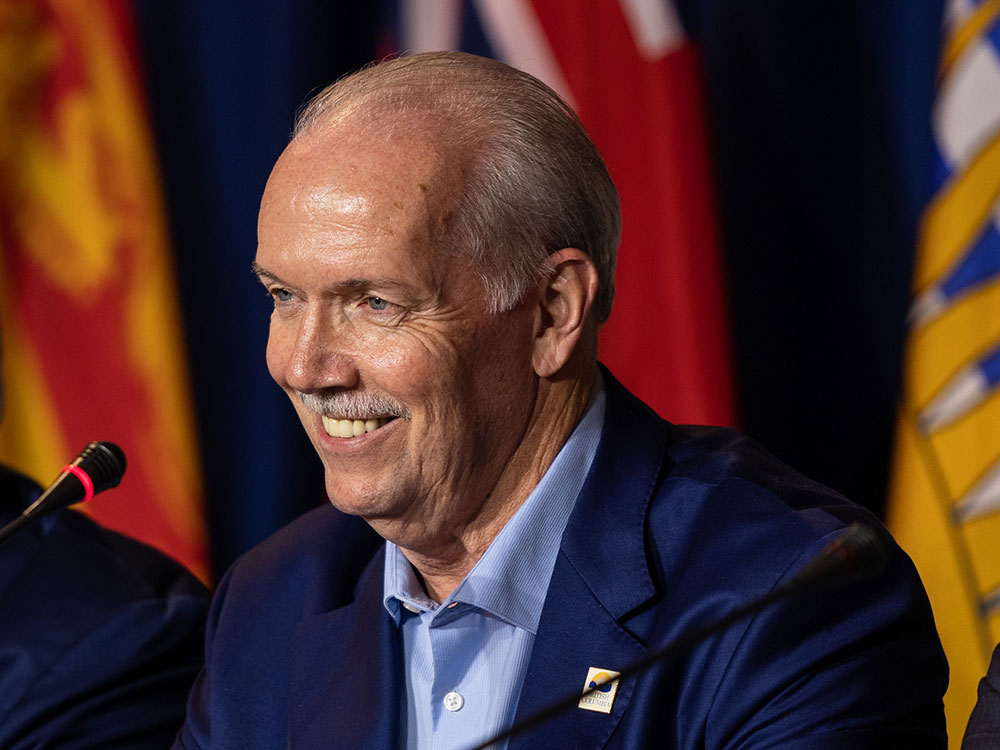The B.C. government recently adopted new housing legislation that upzones large areas of land, compelling municipalities to approve some development applications situated close to transit and provide more multi-unit housing options.
The transit-oriented development and small-scale multi-unit housing legislation — receiving royal assent in the waning days of last year’s sitting of the legislature — boldly transforms the landscape in B.C.
The bills increase density across most B.C. municipalities and around transit hubs such as SkyTrain stations and major bus exchanges. Most municipalities must now approve townhomes, multiplexes and laneway houses on residential lots currently zoned for single-family homes or duplexes, as well as allow taller highrises near transit.
While Housing Minister Ravi Kahlon said he didn’t expect a major lift in land values as a result, the legislation is already leading to land speculation and development site flipping, taking advantage of loopholes in B.C.’s property transfer tax.
This could have been avoided by resurrecting a proposal tabled more than seven years ago by soon-to-be NDP premier John Horgan.
A good idea in opposition, not so much in government
Back in 2016, then-opposition MLA John Horgan, who became premier the following year, introduced Bill M 210 — 2016: Property Transfer Tax Fairness Act, with the following excellent explanatory note.
"This Bill closes two unfair loopholes in the Property Transfer Tax Act. The first clarifies the intent of the existing Property Transfer Tax that the Property Transfer Tax is required to be paid by so-called Shadow Flippers each time an agreement for sale is assigned, even if the assignment is not registered in the Land Registry. The second clarifies the effect of transferring a beneficial interest of a trust as a taxable transaction captured by the Act."
As expected for a bill introduced by an opposition MLA, Horgan’s proposed Property Transfer Tax Fairness Act was not passed.
What’s even more disappointing is the fact that the current B.C. government, under premiers Horgan (five years) and David Eby (one year) has still not pursued this or any other legislation to close these loopholes, which continue to benefit speculators and flippers of condos and development sites.
The property transfer tax was introduced by the Bill Vander Zalm government in 1987 and was initially aimed at reducing speculation and flipping of expensive properties. It is a significant source of revenue for the province, bringing in just over $2 billion in the 2022-23 fiscal year.
The current rate is one per cent on up to $200,000 in value, two per cent between $200,000 and $2 million and three per cent on the value over $2 million. There is a further two per cent tax on residential property value over $3 million. An additional 20 per cent applies to transfers to foreign entities.
In B.C., when you purchase or gain an interest in property that is registered at the land title office, you must pay property transfer tax (unless you qualify for an exemption — such as for certain family transfers).
Unless the new owners exploit a loophole. The tax applies only if ownership on the land registry changes.
But properties can be owned by companies. Buying the company — a transfer of beneficial interest — does not trigger the tax.
By contrast, in Ontario unregistered dispositions of a beneficial interest in land have been taxed in the same way as registered transfers since 1989.
In 2019, however, the B.C. government did establish a Condo and Strata Assignment Integrity Register. This is a database for assignments of purchase agreements of all residential condo and strata lots in B.C., including both pre-sale lots and completed lots. Developers are responsible for collecting and reporting this information. This could become the basis for future application of the tax to shadow flipping of assignments for sale, for example by selling contracts to purchase homes via assignments before the sales close with registration of transfers.
Since 2020, B.C. has also had the Land Owner Transparency Registry of beneficial ownership of land. Beneficial land owners are people who own or control land indirectly, such as through a corporation, partnership or trust. The registry could become the basis for future application of the tax to beneficial transfers of property that are not registered in B.C.’s land registry.
These databases could and should assist in combating tax evasion and money laundering. The loopholes Horgan’s 2016 bill attempted to address are still available, however, and widely employed in B.C.
Bare trusts and avoiding property transfer tax
In Ontario, as noted above, unregistered transfers of a beneficial interest in land have been taxed for more than three decades.
In B.C., on the other hand, avoidance of the property transfer tax works like this:
A bare trustee company is established and registered in the land title office as the owner of a property, but the beneficial owner of the property is whoever owns the shares in that company. The beneficial owner continues to make all arrangements for the property and reports any income or capital gain from it for tax purposes.
When the beneficial owner of the property wants to sell, the bare trust company (and the property) is sold to the new owner. There is no change of ownership in the land title office.
Consequently, in B.C. (unlike in Ontario), no property transfer tax is payable on the sale. This is of advantage to both the purchaser, who pays no tax, and the vendor, who can get a higher price. It increases the burden on other taxpayers and the public loses. It is a common strategy in the B.C. real estate business.
A South China Morning Post investigation into the serial sales of two older apartments on Nelson Street in downtown Vancouver provides an example. Wall Financial Corp. bought the properties in 2013 for $16.8 million and sold them in 2016 to Suncom for $60 million at a time when BC Assessment valued them at $15.6 million. Suncom flipped the properties one month later for $68 million.
Journalist Ian Young reported on it in Business in Vancouver.
“Keeping up with the changing ownership of the Nelson Street site has been no simple matter. The changes do not show up in land titles for the two lots, because they remain to this day in the hands of Nelson Street Residences Ltd., a firm set up by the Walls in 2013 that was added to the titles in March 2014. Instead, it is ownership of Nelson Street Residences that has changed hands, thereby avoiding property transfer taxes of $1.78 million for Suncom’s consortium. The share-transfer tactic is common among commercial real estate deals and perfectly lawful.”
A more recent example was the sale of 6428 Cambie St., a 15,371-square-foot site adjacent to the Langara-49th Avenue SkyTrain station, for $17.5 million in December 2023, with no property transfer tax paid. BC Assessment values the site at $11.7 million. The Colliers sales brochure for the site stated it was held in a bare trust and was approved for a 62-unit, 10-storey highrise. The purchaser, Global Education Communities Corp., is, however, applying for higher density under the province’s recent transit-oriented development legislation, which allows at least 20 storeys on the site.
Worth looking back before moving forward
It is hard to understand why the NDP provincial government chose not to adopt legislation it proposed more than seven years ago to close well-known property transfer tax loopholes before it adopted its far-reaching upzoning legislation.
Despite government reassurances to the contrary, that legislation will increase land values and set off a great deal of land speculation and development site flipping.
In addition to not closing the loopholes, it is also a great disappointment that an ostensibly progressive centre-left government did not bring in some robust measures to capture land value gains for public benefits, such as the provision of the physical and social infrastructure and affordable housing that growing populations and greater densities require. ![]()
Read more: BC Politics, Housing, Urban Planning

















Tyee Commenting Guidelines
Comments that violate guidelines risk being deleted, and violations may result in a temporary or permanent user ban. Maintain the spirit of good conversation to stay in the discussion and be patient with moderators. Comments are reviewed regularly but not in real time.
Do:
Do not: